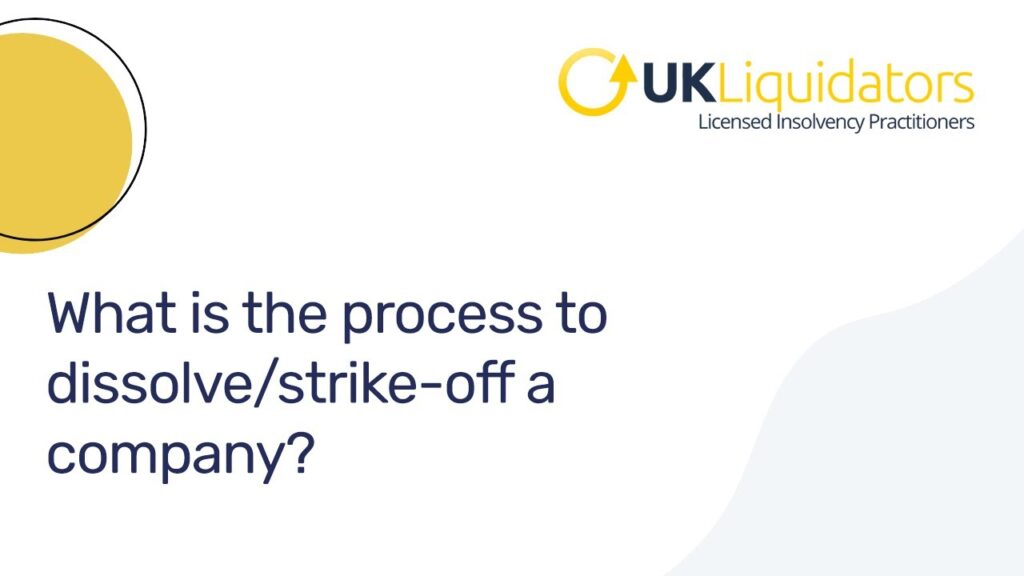Key Actions In the Compulsory Strike Off Refine
Understanding the Refine and Effects of Compulsory Strike Off Under Company Legislation
In the world of firm legislation, the procedure and effects of compulsory strike off hold considerable weight for organizations and their directors. Understanding the ins and outs of why firms face such an outcome, the careful actions involved in the strike off process, and the significant ramifications for all events entailed is crucial in navigating the complicated landscape of business governance. As we explore the factors behind required strike offs, the ensuing procedures, and the succeeding effects, a clearer picture arises of the extensive influence it can carry people and entities alike.
Reasons for Compulsory Strike Off
Required strike off under business law is launched by the governing authorities for specific factors connected to functional or non-compliance abnormalities. The main reason for a firm to face required strike off is the failure to submit yearly returns or economic declarations for a prolonged duration. This non-compliance shows an absence of transparency and adherence to regulative demands, increasing problems regarding the business's financial wellness and accountability.

Process of Strike Off
Given the regulatory authority's initiation of compulsory strike off for various factors, recognizing the procedure of strike off is vital for business dealing with potential dissolution under company regulation. The procedure normally begins with the regulatory authority sending out notifications to the business's registered workplace address, educating them of the approaching strike off. It is important for the company to resolve any type of exceptional issues, such as submitting overdue records or working out exceptional costs, within the defined timeframe to stay clear of dissolution.

Effects for Business
What are the ramifications for business facing required strike off under business regulation? Business dealing with mandatory strike off might experience numerous considerable effects. Firstly, the business discontinues to lawfully exist, causing the loss of its business condition and the accompanying benefits and defenses. This can result in the lack of ability to enter into agreements, conduct organization, or pursue lawsuits in the firm's name.
Additionally, the firm's properties at the time of strike off become residential property of the state, which can result in economic losses for lenders and investors. Investors might shed their investments, while lenders might battle to recoup any kind of arrearages owed to them by the struck-off company.
In addition, supervisors of the company may face incompetency from holding comparable settings in other firms for a specific period (first gazette notice). This can taint their professional online reputation and restrict their future company chances
Consequences for Supervisors
Dealing with compulsory strike off under firm legislation can have severe implications for directors, influencing their future functions in other firms and potentially staining their expert standing. Supervisors of a business facing obligatory strike off may locate it challenging to safeguard directorial settings in various other business in the future. This is due to the fact that the strike off suggests a failing to adhere to lawful commitments, increasing problems regarding the supervisor's ability to accomplish their responsibilities properly. Moreover, you could check here the stained specialist credibility arising from a compulsory strike off can cause a loss of trust from service clients, partners, and stakeholders. Directors may additionally deal with individual economic liabilities if they are found to have acted negligently or fraudulently, causing possible lawful activities versus them. Overall, the consequences of mandatory strike off for supervisors prolong past the details firm concerned, impacting their career prospects and professional reputation in the lengthy term.
Preventing Compulsory Strike Off

Conclusion
Finally, comprehending the procedure and effects of required strike off under firm regulation is essential for companies and directors to guarantee compliance with policies. By knowing the reasons for strike off, the process included, and the effects for all events entailed, firms can take actions to prevent going through mandatory strike off. It is necessary for directors to be proactive in maintaining proper documents and conference legal responsibilities to avoid the risk of strike off.
Given the governing authority's initiation of required strike off for numerous reasons, understanding the process of strike off is crucial for firms dealing with prospective dissolution under company regulation.What are the implications for business facing compulsory strike off under firm legislation?Facing required strike off under firm legislation can have severe implications for directors, influencing their future functions in other firms and potentially tarnishing their specialist standing. Directors of a firm dealing with mandatory strike off might discover it testing to secure directorial positions in other firms in the future.In verdict, comprehending the process and effects of mandatory strike off under business regulation is necessary for business and directors to make sure compliance with guidelines.